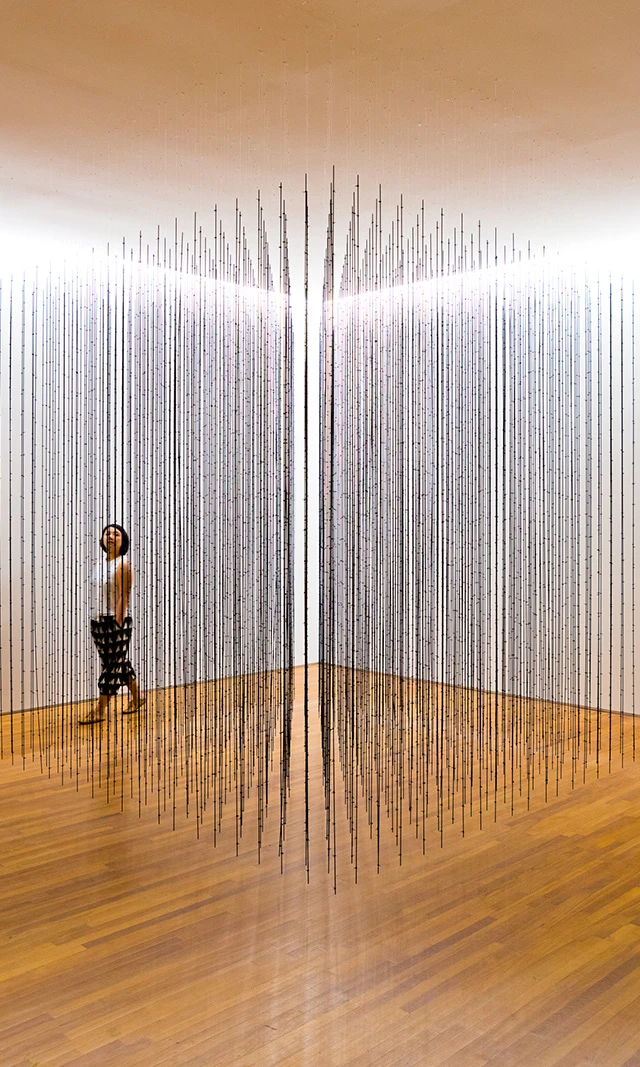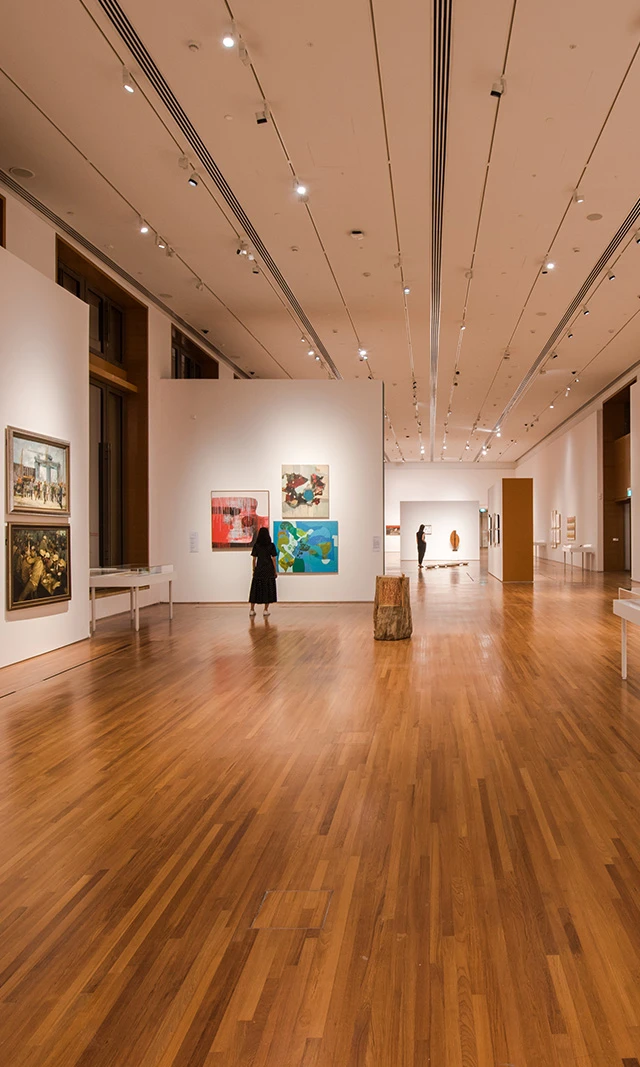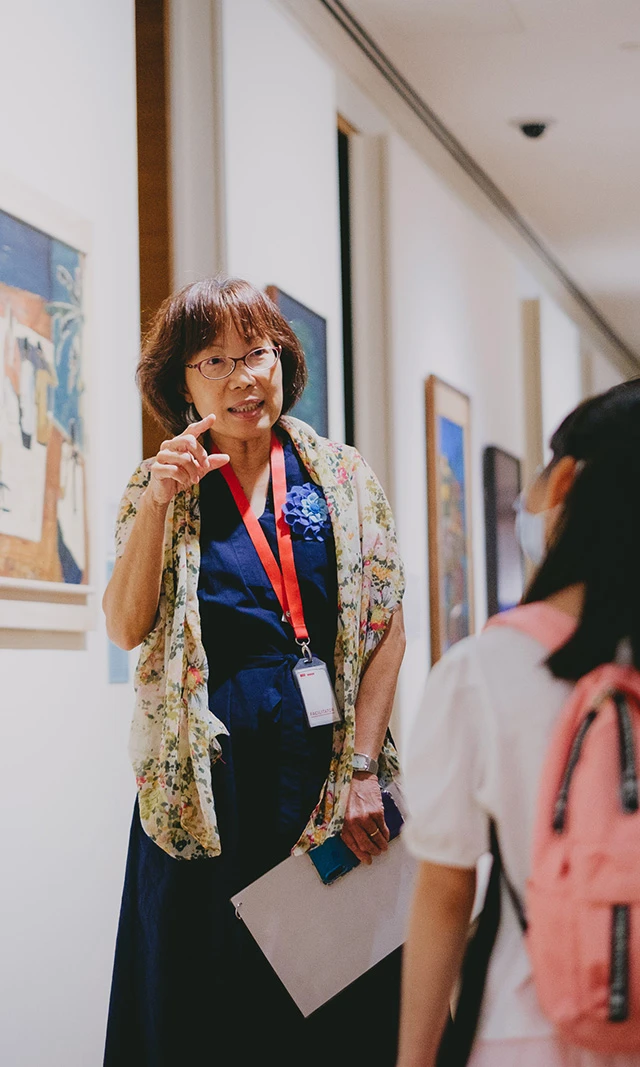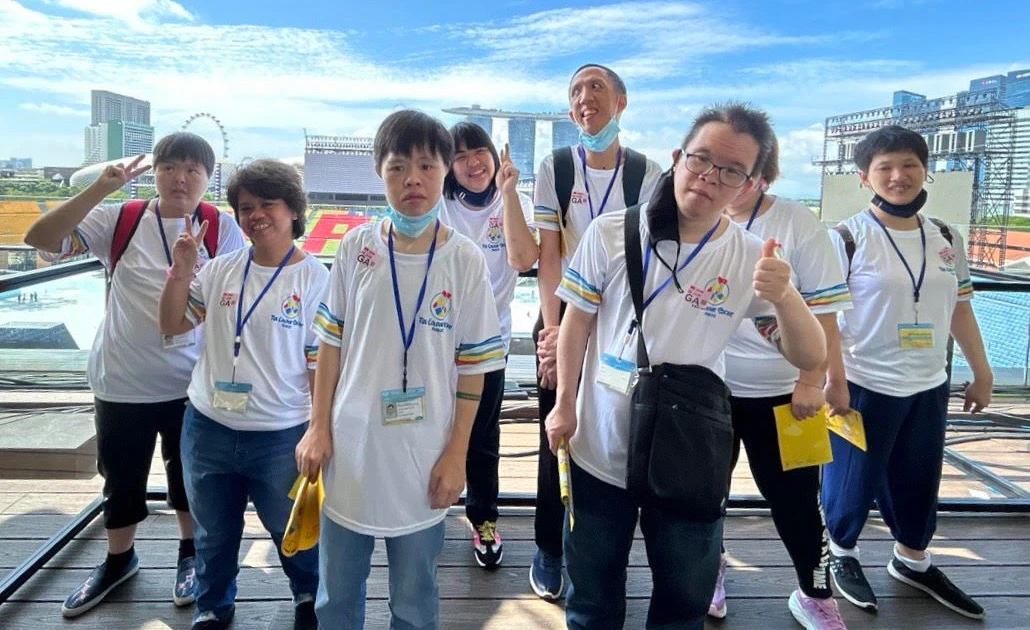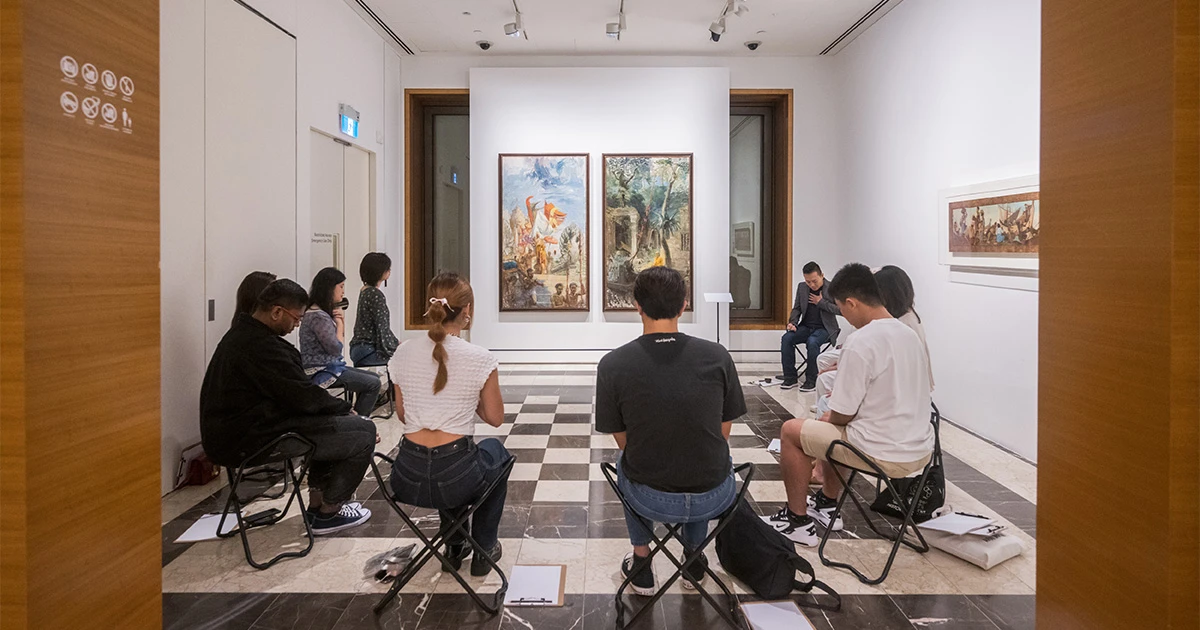Open Doors, Open Hearts: Creating a Dementia-Inclusive Gallery
Dementia is one of the most debilitating health conditions faced by Singapore's rapidly ageing population. Faith Lee speaks to two frontline museum workers to find out more about the Dementia Awareness Workshop they attended, conducted by the Alzheimer's Disease Association, to understand dementia better.
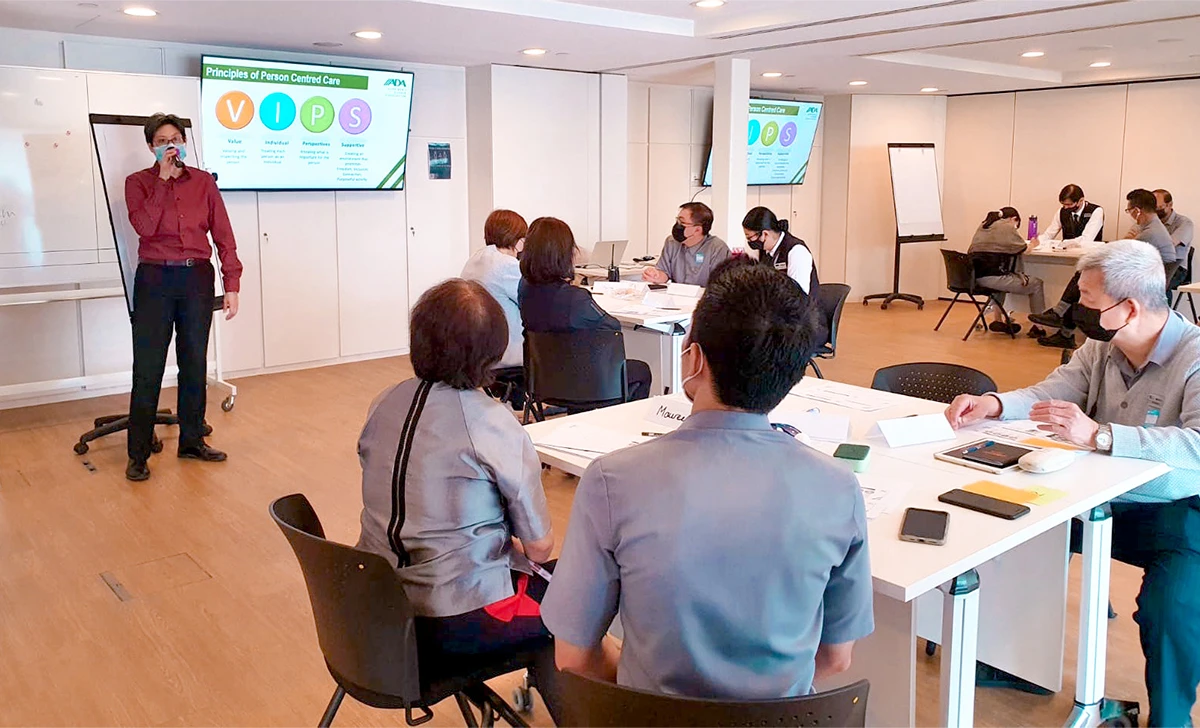
Where am I? How did I get here? I blink, disoriented. My surroundings whirl before my eyes as I shuffle towards the door. I peer out to see a man sitting in a living room, brows furrowed in frustration as he scans through a newspaper.
I hesitantly open my mouth, “Wh–“
“For the last time, Ma, this is our home!”
The newspapers snap up, obscuring his face. He sighs audibly and I feel a twinge in my chest. Shrinking back to my room, I slump into a rattan chair. Home? My eyes sweep around the unfamiliar space. I barely register the fading portrait on the wall, glittering memories of a beaming family encased behind a picture frame.
A beat passes.
I shuffle towards the door.
Dementia is one of the most debilitating health conditions faced by Singapore’s rapidly ageing population. Affecting one in ten seniors aged 60 and above, this translated to approximately 82,000 people in 2018, and cases are expected to exceed 150,000 by 20301. This situation highlights the crucial need to build stronger support systems for affected individuals, their caregivers and the public.
Enter Art with You. To support the growing population of persons living with dementia, the Community & Access Team at National Gallery Singapore has collaborated with the Alzheimer’s Disease Association* to develop an initiative that combines person-centred care with the arts. This initiative will create an inclusive environment where persons with dementia are valued, given freedom to express their individuality and engage in meaningful, creative activities.
Art With You will transform the Gallery into a safe and welcoming social space for persons with dementia and their caregivers. To start, docents will lead participants through a tour of artworks from our National Collection, sparking conversations and giving them the chance to voice their unique perspectives through meaningful interactions. After the tour, they will take part in hands-on art making workshops that provide them with a platform to express themselves through creative activity while giving shape to their reflections.
Inclusive programming like this is just half of the picture. Such programmes can only succeed when they are complemented with internal advocacy and training for Gallery staff. Person-centred care has to be interwoven into all aspects of interaction, especially for our frontline workers who are integral to creating memorable experiences for all our visitors. In anticipation of the launch of Art With You, our Gallery Ambassadors and front-of-house staff were invited to attend a Dementia Awareness Workshop. The Workshop aimed to help participants understand dementia better, and equip participants with the skills and knowledge to welcome persons with dementia and their caregivers at the Gallery.

We took the chance to speak to two of the Workshop participants to learn more about what care towards visitors with dementia looks like from a museum frontline worker’s perspective.
One of the two people we interviewed was Carmela Marquez. Among our pioneer batch of Gallery Ambassadors, Carmela is a Philippine national who has been working at the Gallery since it first opened in 2015. Working hard to maintain our building’s security, she is often the first to arrive and last to lock up. She patrols the grounds with a cheerful smile while ensuring the safety of our visitors.
The second person we interviewed, Joseph Lim, is a retiree who loves the arts. Having joined the Gallery in 2016 as a member of our front-of-house staff, he is regularly seen at our reception counters, as a gallery sitter in our exhibition spaces or at our Tours Desk at the Visitor’s Centre.
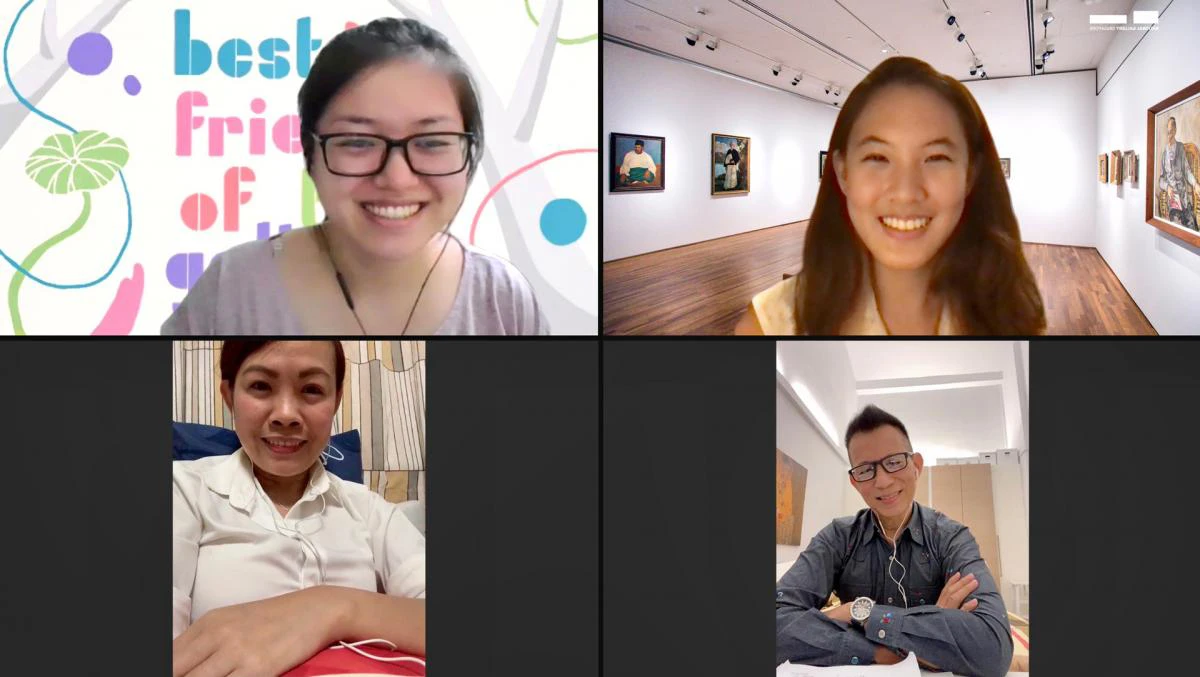
Do you personally know anyone with dementia? What are your interactions like?
Carmela: My aunty in the Philippines first developed early-stage dementia around 60 years old after retiring as a teacher. Her condition has deteriorated since, and now that she is 75, the family has gotten a helper to assist her. I haven’t seen her in a long time as I have not been able to return home since the pandemic, but I know she’s not in very good condition. My cousin shared that my aunty has regressed to her younger years, comparing her to a toddler who is not able to take care of herself.
Joseph: My neighbour’s father has moderate dementia. Her main concern is that he sometimes wanders around the estate and then doesn’t know how to come home, so they have also had to employ a helper. We meet often, but whenever I greet him in the lift, he will look at me with a bit of suspicion as though asking, “Who are you?”
What motivated you to participate in the Dementia Awareness Workshop?
Carmela: For me, I considered it a privilege to attend this workshop. I saw it in a very positive light as an opportunity to learn from the trainers and gain valuable new knowledge which I can then share with other people.
Joseph: I signed up because I knew there was a lot of gain from it and wanted to understand more about dementia. Such awareness would help me if I were to come across such people in my course of duty. Most importantly, this knowledge would help me interact with any of my friends or family members who may develop dementia.
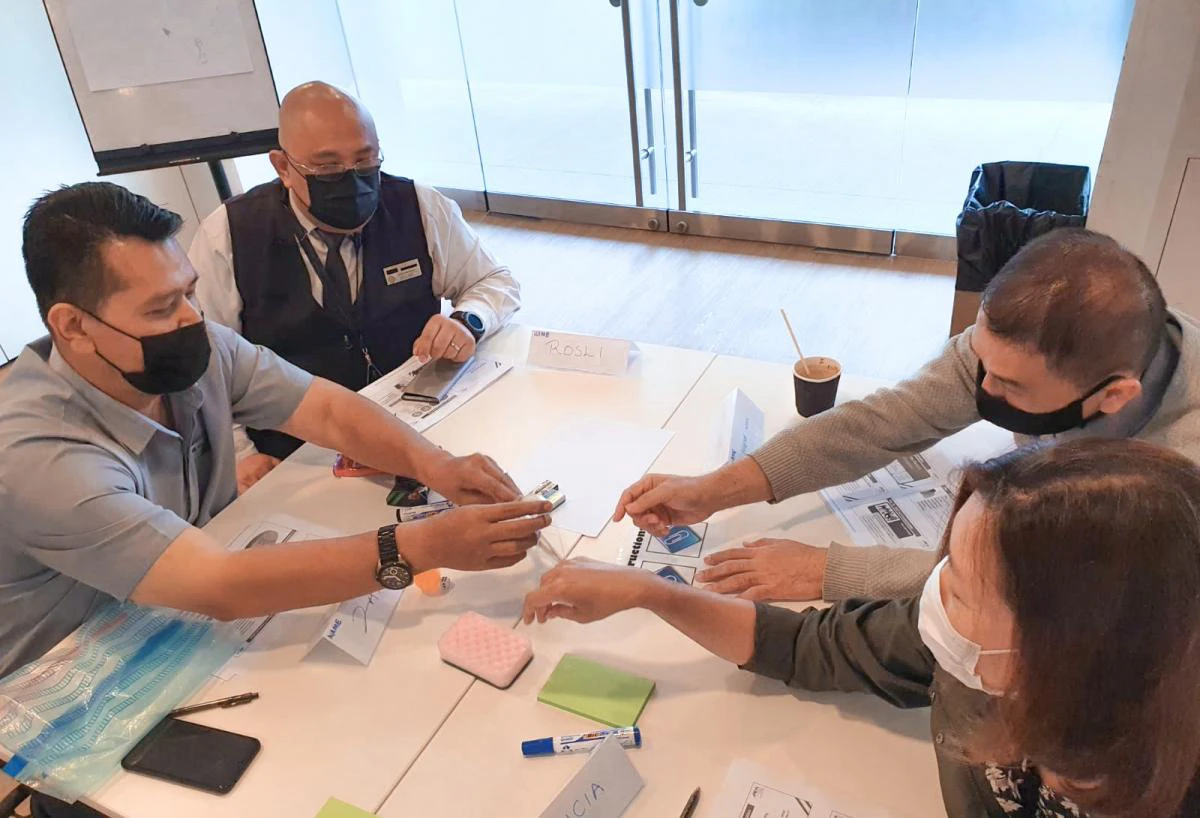
What were your biggest takeaways from the course?
Carmela: I’ve had many great takeaways. Before the Dementia Awareness Workshop, I had no clue about dementia. I was afraid and not open to them. Now, I’m able to recognise the signs and symptoms of dementia. I have also learnt how to understand things from their perspective and communicate with them effectively. We shouldn’t stigmatise those with dementia, but instead should embrace them, love them and take good care of them.
Joseph: Never assume that all persons with dementia are the same. They each have unique journeys and experiences. The assumption is usually to label them and write them off as forgetful. However, it’s important to understand that there are various stages and even among those with dementia, they are all different. If you take the time to understand them, I think we will be more successful in dealing with them. That is my biggest takeaway.
As a frontline worker, what does care towards visitors with dementia look like to you?
Carmela: To me, helping and caring for others is my top priority. Care is something that has to come from within you, wherever you are, whoever you’re with. If you really care for others, there’s not a shadow of a doubt about how well you treat those around you. For example, as a Gallery Ambassador I deal with visitors and staff every day. For persons with dementia, if you really care for them, it’s natural to talk to them and smile with them as you would anyone else.
Joseph: Care comes with a lot of criteria. When dealing with people with dementia, patience is number one. Number two is being nurturing. When they start to lose track of what you’re saying, you have to reinforce your line of questioning to help them remember. The third criterion is to show love and kindness. Whether the person with dementia is a family member or visitor to the Gallery, you have to continue building on kindness, love and trust. This is universal.
How do you see yourself applying the skills learnt from the Dementia Awareness Workshop to your work at the Gallery?
Carmela: I’ll assure them they’re welcome at the Gallery, support them and ensure their safety to make them feel at home. We must never make fun of, interrupt or argue with them. Instead, it’s very important to communicate respectfully. It’s not every day that they get to visit the Gallery, and for some of them it may be a once in a lifetime experience, so I will make sure that it’s really worth their time.
Joseph: When dealing with a visitor living with dementia, avoid making assumptions. We cannot assume that all people with dementia are incapable of looking after themselves or treat them like they are handicapped. We cannot make blanket assumptions about everybody. Instead, a practical step is to find out more first. From our conversation, I can then gauge what kind of help they may need. That requires patience, kindness and love. Like Carmela said, we need to build that trust that we are there to look after their welfare and make them feel welcomed.
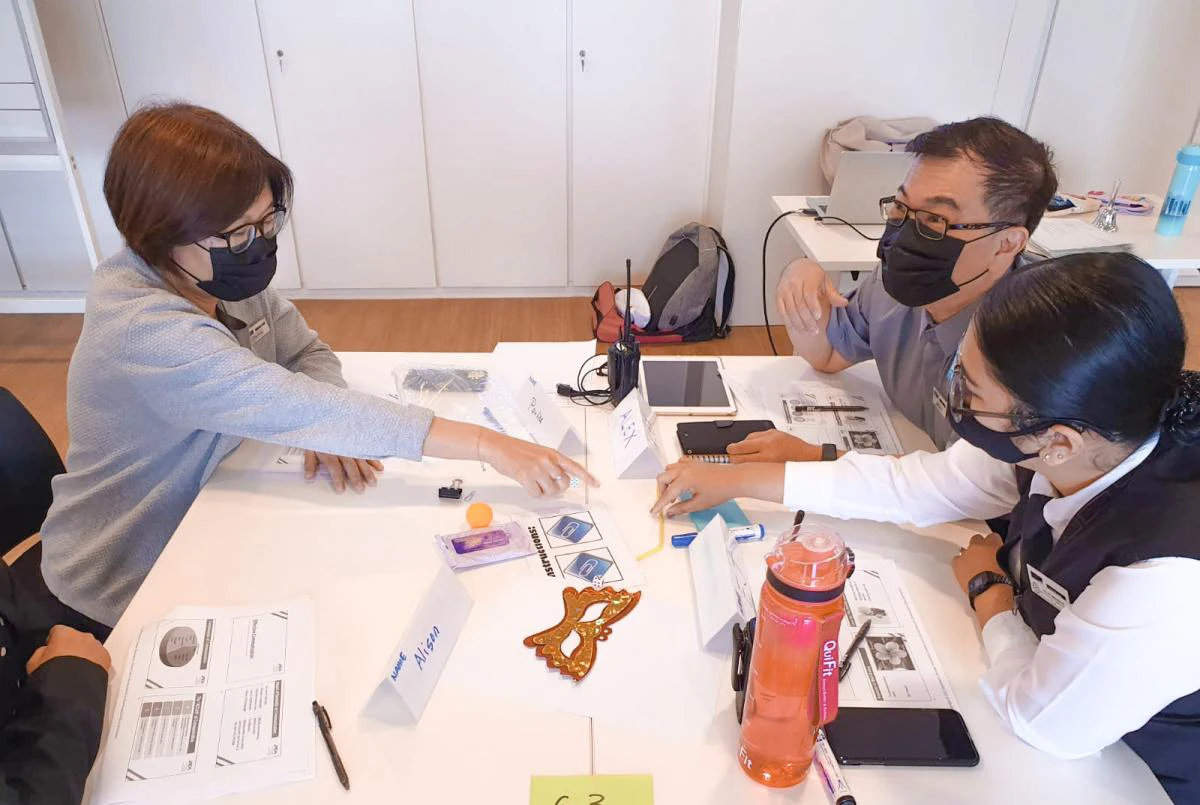
In conclusion, in a country facing a rising wave of dementia, it is essential that we nurture care, acceptance and empathy in society. This applies across personal, frontline, and institutional levels. While dementia may be beyond our control, inclusivity is a choice that we all have the power to make. Inclusivity goes beyond simply widening our circles; it means valuing every person with dementia as a unique individual with their own distinctive characters, hopes, dreams, and stories.
As the saying goes, “seek first to understand, then to be understood.” Everyone desires to age with dignity. If we each put ourselves in the shoes of those with dementia, we can come to a place of true understanding to better support them, build stronger relationships and accord them the dignity they deserve. These are, after all, our parents, grandparents and neighbours—our family.
Notes
- Health Promotion Board. “Let's Talk about Vascular Dementia.” HealthHub, www.healthhub.sg/programmes/74/understanding-dementia#:~:text=In%20Singapore%2C%201%20in%2010,increase%20to%20152%2C000%20by%202030
- The Alzheimer’s Disease Association will be renamed Dementia Singapore from September 2021.




